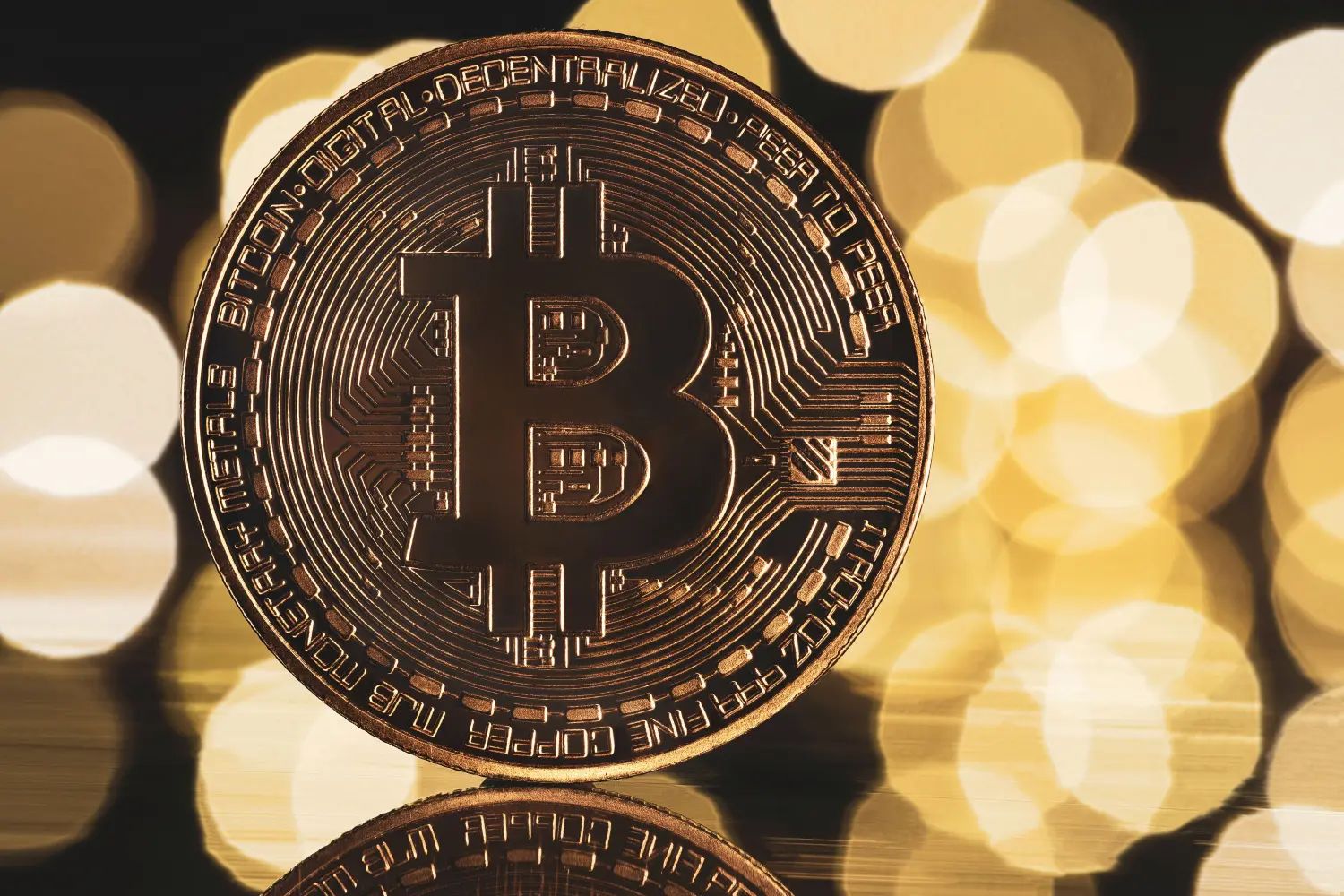
Bitcoin has taken the world by storm since its mysterious creation in 2009 by the elusive Satoshi Nakamoto. But what exactly makes this digital currency so special? Bitcoin isn't just a buzzword; it’s a revolutionary form of money that operates without a central authority. Imagine a currency that you can send to anyone, anywhere, without needing a bank. Sounds cool, right? Well, there's more to it than meets the eye. From its decentralized nature to its limited supply, Bitcoin offers a unique blend of security, transparency, and freedom. Ready to dive into some mind-blowing facts about this digital gold? Let's get started!
Key Takeaways:
- Bitcoin is a digital currency created by an unknown person or group, offering lower transaction fees and decentralized control. Its value has skyrocketed, inspiring the creation of other cryptocurrencies and impacting various sectors.
- Bitcoin's impact on society includes creating millionaires, facilitating remittances, and enabling charitable donations. Its future potential includes becoming a global reserve currency and ongoing technological advancements for scalability and security.
What is Bitcoin?
Bitcoin is a digital currency created in January 2009. It follows the ideas set out in a whitepaper by the mysterious and pseudonymous Satoshi Nakamoto. Bitcoin offers the promise of lower transaction fees than traditional online payment mechanisms and is operated by a decentralized authority, unlike government-issued currencies.
-
Bitcoin was created by an unknown person or group of people using the name Satoshi Nakamoto. The true identity of Nakamoto remains a mystery to this day.
-
Bitcoin is decentralized. No single institution controls the Bitcoin network. It is maintained by a group of volunteer coders and run by an open network of dedicated computers spread around the world.
How Bitcoin Works
Understanding how Bitcoin functions can be complex, but here are some simplified facts to get you started.
-
Bitcoin transactions are verified by network nodes through cryptography. These transactions are recorded in a public distributed ledger called a blockchain.
-
Bitcoin mining is the process by which new bitcoins are entered into circulation. It involves solving complex mathematical problems that verify transactions in the currency.
-
There will only ever be 21 million bitcoins. This limit is hard-coded into the Bitcoin protocol and is expected to be reached by the year 2140.
Bitcoin's Market and Value
Bitcoin's value has seen dramatic changes since its inception. Here are some key points about its market behavior.
-
The first real-world Bitcoin transaction was for two pizzas. In 2010, a programmer named Laszlo Hanyecz paid 10,000 bitcoins for two Papa John's pizzas.
-
Bitcoin's value has skyrocketed over the years. From being worth less than a penny in 2009, Bitcoin reached an all-time high of nearly $65,000 in April 2021.
-
Bitcoin is often referred to as "digital gold." This is due to its limited supply and its use as a store of value.
Bitcoin and Security
Security is a major concern for any form of currency, and Bitcoin is no exception. Here are some facts about Bitcoin's security features.
-
Bitcoin transactions are irreversible. Once confirmed, a transaction cannot be undone, which helps prevent fraud.
-
Bitcoin uses public and private keys for security. A public key is like an address that others can send bitcoins to, while a private key is like a password that allows you to access and manage your bitcoins.
-
Bitcoin wallets can be hardware or software-based. Hardware wallets are physical devices that store your private keys offline, making them immune to online hacking.
Bitcoin's Impact on the World
Bitcoin has had a significant impact on various sectors, from finance to technology. Here are some ways it has influenced the world.
-
Bitcoin has inspired the creation of thousands of other cryptocurrencies. These are collectively known as altcoins.
-
Bitcoin is legal in many countries but banned in others. Countries like Japan and the United States have embraced Bitcoin, while others like China and India have imposed restrictions or outright bans.
-
Bitcoin has been adopted by some major companies. Companies like Tesla, Square, and PayPal have started accepting Bitcoin as a form of payment.
Bitcoin and the Environment
Bitcoin's environmental impact has been a topic of debate. Here are some facts about its energy consumption.
-
Bitcoin mining consumes a significant amount of energy. The process of mining Bitcoin uses more electricity than some entire countries.
-
Efforts are being made to make Bitcoin mining more sustainable. Some miners are turning to renewable energy sources to reduce their carbon footprint.
Bitcoin and Regulation
Regulation is a hot topic in the Bitcoin community. Here are some facts about how Bitcoin is regulated around the world.
-
Bitcoin is considered property by the IRS. In the United States, Bitcoin is taxed as property, not currency.
-
Some countries have strict regulations on Bitcoin. Countries like South Korea have implemented strict regulations to prevent money laundering and fraud.
-
Bitcoin ATMs are becoming more common. These machines allow users to buy and sell Bitcoin using cash or credit cards.
Bitcoin and Technology
Bitcoin has spurred technological advancements and innovations. Here are some key technological aspects of Bitcoin.
-
Bitcoin uses blockchain technology. A blockchain is a decentralized ledger that records all transactions across a network of computers.
-
Smart contracts can be built on Bitcoin's blockchain. These are self-executing contracts with the terms directly written into code.
-
The Lightning Network aims to make Bitcoin transactions faster and cheaper. It is a second-layer solution that allows for off-chain transactions.
Bitcoin and Society
Bitcoin has had a profound impact on society. Here are some ways it has influenced social and economic behaviors.
-
Bitcoin has created a new class of millionaires. Early adopters who held onto their bitcoins have seen massive returns on their investments.
-
Bitcoin is often used for remittances. People use Bitcoin to send money across borders quickly and with lower fees compared to traditional methods.
-
Bitcoin has been used for charitable donations. Organizations like the Red Cross and Save the Children accept Bitcoin donations.
Bitcoin and the Future
The future of Bitcoin is a topic of much speculation. Here are some predictions and ongoing developments.
-
Bitcoin could become a global reserve currency. Some experts believe Bitcoin has the potential to replace traditional fiat currencies.
-
Bitcoin's technology continues to evolve. Developers are constantly working on improving Bitcoin's scalability, security, and usability.
Bitcoin: A Fascinating Digital Currency
Bitcoin's journey from a niche concept to a global phenomenon is nothing short of remarkable. Its decentralized nature, limited supply, and blockchain technology have revolutionized how people think about money and transactions. Despite its volatility, Bitcoin continues to attract investors, tech enthusiasts, and even skeptics.
Understanding these 27 facts about Bitcoin gives a clearer picture of its potential and challenges. Whether you're a seasoned investor or just curious, knowing the basics can help you make informed decisions. Bitcoin's impact on finance, technology, and even culture is undeniable.
As the world continues to adapt to digital currencies, Bitcoin stands out as a pioneer. Its future remains uncertain, but its influence is already etched in history. Keep learning, stay informed, and watch how this digital currency evolves.
Frequently Asked Questions
Was this page helpful?
Our commitment to delivering trustworthy and engaging content is at the heart of what we do. Each fact on our site is contributed by real users like you, bringing a wealth of diverse insights and information. To ensure the highest standards of accuracy and reliability, our dedicated editors meticulously review each submission. This process guarantees that the facts we share are not only fascinating but also credible. Trust in our commitment to quality and authenticity as you explore and learn with us.


